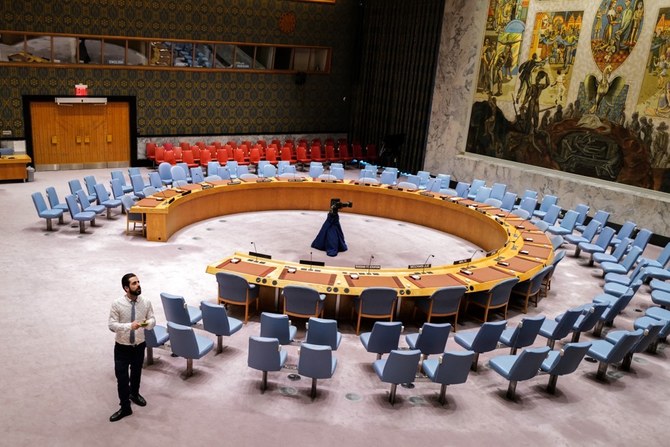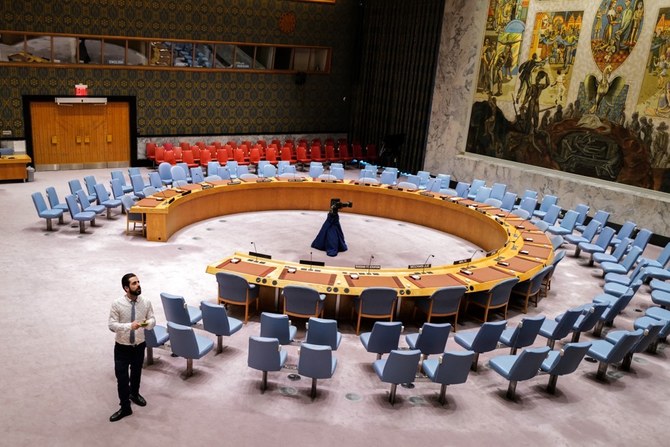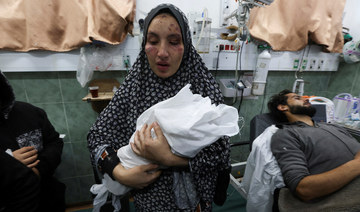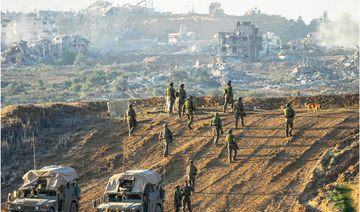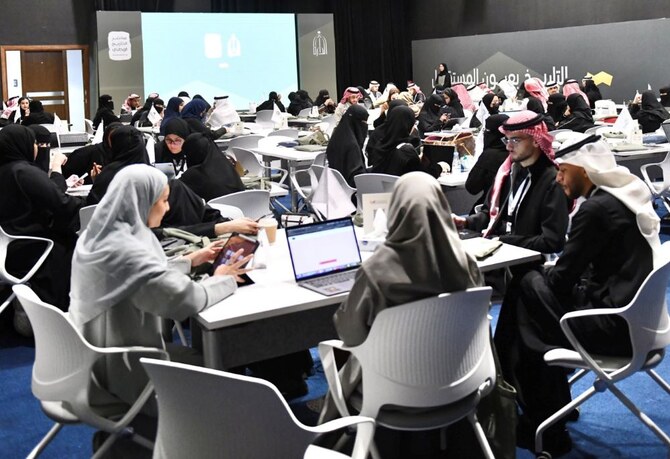GAZA STRIP, Palestinian Territories: The United Nations warned the Israel-Hamas war was pushing Gaza toward famine, ahead of an expected Security Council vote Friday on a resolution to boost aid to the Palestinian territory but not call for a ceasefire.
Separate diplomatic efforts were also under way for a fresh pause in the worst-ever Gaza war, which was triggered by an unprecedented Hamas attack on Israel in October.
With conditions deteriorating in the territory, the UN Security Council has been locked in negotiations on a resolution that would boost aid deliveries.
The latest draft seen by AFP, set to face a vote Friday, calls for “urgent steps to immediately allow safe and unhindered humanitarian access, and also for creating the conditions for a sustainable cessation of hostilities.”
It does not call for an immediate end to fighting.
Backed by its ally the United States, Israel has opposed the term “ceasefire.” Israeli Prime Minister Benjamin Netanyahu said Wednesday there would be no ceasefire in Gaza until the “elimination” of Hamas.
Linda Thomas-Greenfield, US ambassador to the UN, told reporters that Washington would support the resolution if it “is put forward as is.”
The war began on October 7 after Hamas militants broke through Gaza’s militarized border and killed around 1,140 people in Israel, mostly civilians, according to an AFP tally based on Israeli figures.
Hamas also abducted about 250 people.
Vowing to destroy the group, Israel began a relentless bombardment of targets in Gaza, alongside a ground invasion, which the territory’s Hamas government on Wednesday said has killed at least 20,000, mostly women and children.
The entire population of Gaza faces “an imminent risk of famine,” according to a UN-backed global hunger monitoring system on Thursday, with more than half a million people facing “catastrophic conditions.”
“We have been warning for weeks that, with such deprivation and destruction, each day that goes by will only bring more hunger, disease and despair to the people of Gaza,” UN humanitarian chief Martin Griffiths posted on X, formerly Twitter.
The UN estimates 1.9 million Gazans are now displaced, out of a population of 2.4 million.
With their homes destroyed, they are living in crowded shelters and struggling to find food, fuel, water and medical supplies. Diseases are spreading, and communications have been repeatedly cut.
Displaced Gazans are pleading for a ceasefire.
“My message is to put an end to this humiliation,” said Fuad Ibrahim Wadi, who found refuge at a greenhouse in Rafah.
“This war does nothing but destroy. Enough is enough.”
After weeks of pressure, Israel approved the temporary reopening of the Kerem Shalom crossing on Friday to enable aid deliveries directly to Gaza, rather than through the Rafah crossing from Egypt.
On Thursday, an Israeli strike hit the Palestinian side of Kerem Shalom, the crossings authority and the Hamas health ministry said.
Israeli officials did not immediately respond to requests from AFP for comment.
The UN secretary-general’s spokesman, Stephane Dujarric, said the UN agency for Palestinian refugees, UNRWA, was “unable to receive (aid) trucks” via Kerem Shalom following the “drone strike” and that the World Food Programme had suspended operations at the crossing.
Dujarric’s comments came after Israeli President Isaac Herzog said Israel could enable as many as “400 trucks a day” of aid and blamed the UN for failing to bring more.
According to the UN, the number of aid trucks entering Gaza is well below the daily pre-war average.
Diplomats visiting the region have called for more assistance to reach the territory.
Israel has repeatedly accused Hamas of using schools, mosques, hospitals and vast tunnel systems beneath them as military bases — charges the group denies.
On Thursday, military spokesman Daniel Hagari said Israeli troops have killed more than 2,000 Palestinian militants since a one-week ceasefire ended on December 1.
He did not elaborate on the source of his figures.
According to a tally on the Israeli military’s website, 139 soldiers have been killed since it began its ground assault in Gaza on October 27.
A strike on a house in Rafah on Friday killed five people, the Hamas health ministry said.
The United Nations human rights office in Ramallah said it had received reports that Israeli troops had “summarily killed” at least 11 unarmed Palestinian men in Gaza City’s Rimal neighborhood this week.
An Israeli official, speaking on condition of anonymity, rejected the allegations as “yet another example of the partisan and prejudiced approach against Israel” by the UN body.
Israel has been under increasing pressure from allies, including the United States, which provides it with billions of dollars in military aid, to protect civilians.
The UN rights office said “details and circumstances” of the killings in Rimal are still being verified but it “raises alarm about the possible commission of a war crime.”
The men were killed in front of their family members, it said.
Legal experts have previously said that both sides could be accused of committing war crimes.


